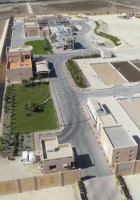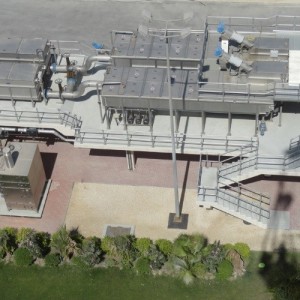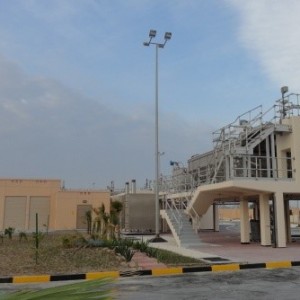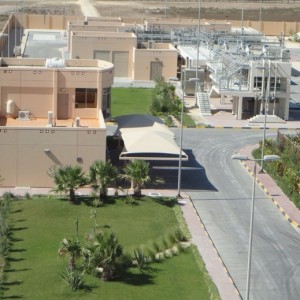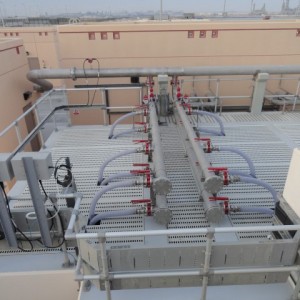The Ma’Ameer and North Refinery Industrial Area has long been a focus point for issues of environmental pollution, being home to a wide range of important industrial facilities, including a large cement factory. However, the area was not served by sewage or stormwater networks and suffered frequent flooding, with private septic tanks overflowing into public areas and contaminating groundwater.The client, the Ministry of Works of the Kingdom of Bahrain, thus prioritized the development of a comprehensive solution that would clearly demonstrate its commitment to environmental protection for the communities in Ma’Ameer. This involved building a sewerage network, stormwater network, and a sewage treatment plant that would treat the collected flows.The Ministry looked to MWH, now part of Stantec, a global leader in water and environmental services, to help deliver on its promise to the communities in Ma’Ameer. MWH was appointed to design new drainage and sewerage networks to connect the communities and also design the new sewage treatment plant to treat the collected sewage and produce high-quality effluent for reuse.
To meet the client’s goals, MWH chose to pioneer the use of advanced membrane bioreactor (MBR) technology in the kingdom for the sewage treatment plant. The plant is has a peak capacity of 3,600 m3 a day and produces high-purity water suitable that significantly exceeds standards for unrestricted irrigation use. The plant is also designed to gracefully handle shock loads from industrial effluent.
As the owner’s engineer, MWH assisted in ensuring that the plant was built and operated to world-class standards by a local Bahraini contractor. MWH established a deep and close partnership with the small, local Bahraini EPC contractor, Zohal, which allowed them to deliver an effective solution in terms of budget, schedule, quality and O&M. This included overcoming poor ground conditions at the site—which required excavating 6 m down to the bedrock and refilling with more suitable materials—while still maintaining budget and schedule.
In addition, under MWH supervision, the project excelled in workplace safety, achieving 492,000 hours without a Lost Time Injury (LTI).
Construction began on 13 February 2010 and the plant was commissioned on schedule on New Year’s Eve, 31 December 2012. The plant was completed and delivered to exceed Client expectations for a fixed fee of BHD6.4 million (US$17 million), with no variation orders or budgetary extensions.
For the communities, both industrial and residential, in the small town of Ma’Ameer, this project converted a significant environmental & public health challenge into a world-class asset. The facility continues to produce recycled water that exceeds the quality requirements for unlimited reuse.
